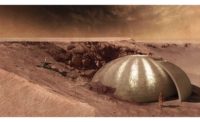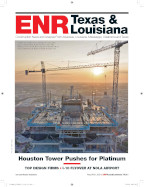The ongoing fight over the future of LightSquared's plans to build a broadband satellite network using GPS spectrum entered a new phase this week.
The Reston, Va.-based LightSquared filed a petition with the Federal Communications Commission on Dec. 20, seeking a declaratory ruling on whether it can make use of the spectrum it has been licensed for its proposed 4G LTE broadband network.
The network plans would occupy frequencies adjacent to those used by most of the GPS receivers currently in use. GPS companies, industry groups and government agencies that rely on the current GPS spectrum bands have aligned against LightSquared's plans, saying the firm's network plan, which deploys terrestrial re-use of satellite signals, would cause significant disruption to their communications systems. The FCC has said it will not issue any approvals for LightSquared's plans until the company has addressed the disruption issues raised by GPS industry parties.
In its FCC filing, LightSquared asserts that “GPS devices listen for radio signals in both the RNSS [Radio Navigation Satellite Service] frequency band in which the U.S. GPS system is intended to operate, as well as across the adjacent MSS [Mobile Satellite Service] frequency band that is not intended for GPS use, and in which LightSquared is licensed.” GPS advocates have said in the past that receivers often rely on weak signals and can’t handle interference from adjacent bands.
But Jeff Carlisle, LightSquared executive vice president for regulatory affairs and public policy, said the fault is in the way the GPS receivers were built. “They are seeing interference because they are looking into our frequency,” he said. “GPS receivers are not entitled to look outside of their band.”
The Coalition to Save Our GPS, an industry group that includes major GPS receiver manufacturers and systems providers such as Trimble, Garmin, Caterpillar, Deere & Co., The Manitowoc Company, and many surveying and engineering firms, disputes some of the assertions in LightSquared's latest filing.
Jim Kirkland, Trimble vice president and general counsel, said “LightSquared has not demonstrated that GPS would not be interfered with.” The group points to recent government tests in which LightSquared equipment was shown to cause interference in a majority of tested GPS receivers. “LightSquared's oft reported assertion of a clean bill of health is over-exaggerated and false,” said Bronson Hokuf, Garmin principle engineer, GPS systems.
The tests, conducted by the U.S. Air Force at the White Sands Missile Range in November, found significant interference in a range of GPS devices used in proximity to LightSquared equipment. The results, reported by GPSWorld on December 14, showed that 75% of GPS receivers examined were interfered with at a distance of 100 meters from a LightSquared base station. The report, which included slides from the Air Force's own testing results, concluded: “millions of GPS receivers are not compatible with LightSquared’s proposed signals.”
The Dept. of Transportation released its own statement regarding the tests on Dec 14. “Preliminary analysis of the test findings found no significant interference with cellular phones. However, the testing did show that LightSquared signals caused harmful interference to the majority of other tested general-purpose GPS receivers. Separate analysis by the Federal Aviation Administration also found interference with a flight safety system designed to warn pilots of approaching terrain.”
In a rare moment of agreement, both sides in the dispute are now looking to the FCC for clarification. “We are not looking to create a new rule, we are citing longstanding decisions that date back to the 80s and 70s,” said LightSquared’s Carlisle. “If you are going to build an unlicensed receiver, looking outside your band, you have to accept interference. You don’t get protection.”
Trimble’s Kirkland has a different take on the regulatory agency’s role. “The FCC hasn’t been acting like an expert agency in this. It’s time for FCC to step back in and take control of the process, and review what LightSquared has proposed.”




Post a comment to this article
Report Abusive Comment